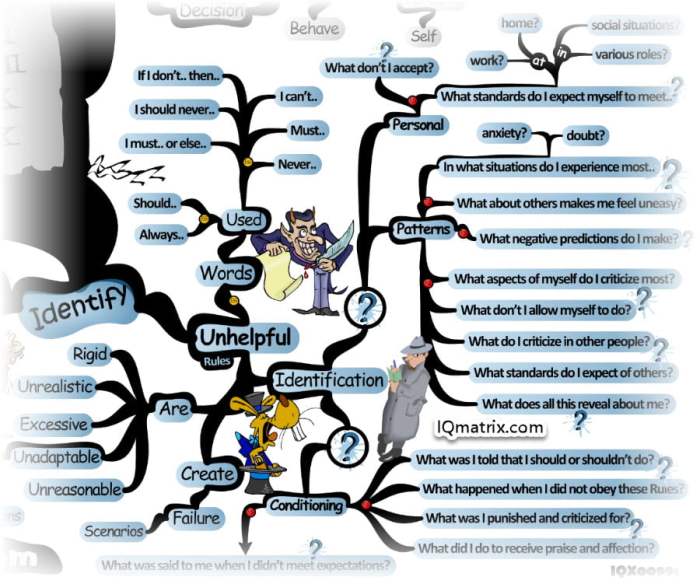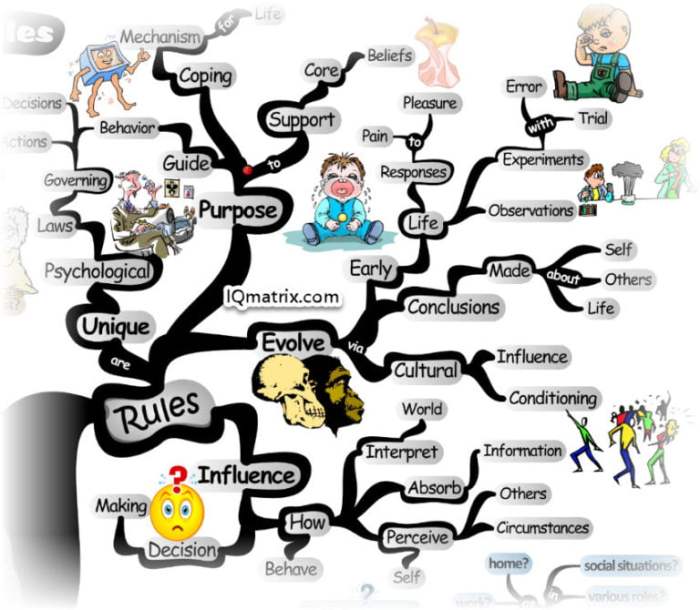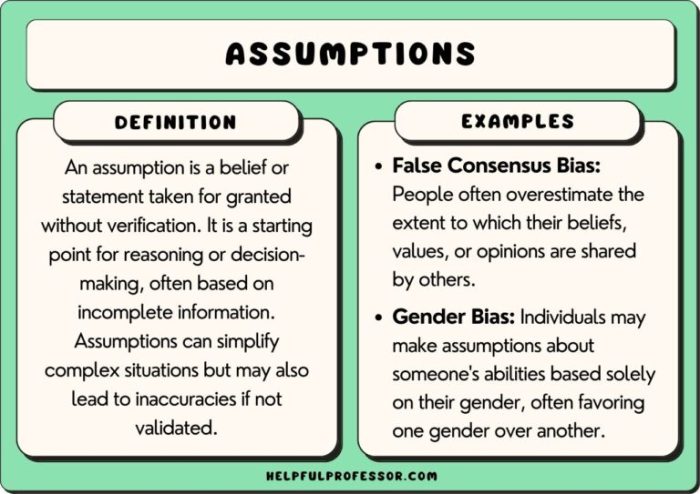Unhelpful rules and assumptions examples – Unhelpful rules and assumptions can stifle productivity, creativity, and innovation. This article explores common examples of such rules and assumptions, their consequences, and strategies for overcoming them.
Unhelpful Rules: Unhelpful Rules And Assumptions Examples

Unhelpful rules are overly restrictive or hinder productivity. They can stifle creativity and innovation by limiting the range of acceptable behaviors and ideas.
Consequences of Enforcing Unhelpful Rules
- Reduced productivity
- Increased frustration
- Lack of motivation
- Suppressed creativity
Unhelpful Assumptions

Unhelpful assumptions are common beliefs that can lead to misunderstandings or errors. They can bias decision-making and prevent individuals from considering alternative perspectives.
Dangers of Making Assumptions
- Misunderstandings
- Errors in judgment
- Biased decision-making
- Lack of critical thinking
Examples of Unhelpful Rules and Assumptions in Practice

| Rule/Assumption | Context | Consequences | Alternatives |
|---|---|---|---|
| “Employees must dress in formal attire.” | Workplace | Reduced comfort and productivity | Allow for more flexible dress codes that prioritize comfort and functionality |
| “All customers are always right.” | Customer service | Poor customer service and employee burnout | Encourage employees to use critical thinking and empathy when interacting with customers |
| “We have always done it this way.” | Team projects | Lack of innovation and progress | Promote open communication and encourage team members to question existing processes |
| “Women are not as good at math as men.” | Education | Biased grading and reduced opportunities for women | Challenge gender stereotypes and provide equal opportunities for all students |
Overcoming Unhelpful Rules and Assumptions
Strategies for Identifying and Challenging Unhelpful Rules and Assumptions
- Question the validity of rules and assumptions
- Seek evidence to support or refute them
- Consider alternative perspectives
- Be open to change and new ideas
Importance of Critical Thinking and Open-Mindedness, Unhelpful rules and assumptions examples
Critical thinking involves questioning assumptions, evaluating evidence, and drawing logical conclusions. Open-mindedness allows individuals to consider different perspectives and challenge their own beliefs.
Fostering a Culture that Encourages Questioning and Innovation
- Encourage employees to ask questions and challenge the status quo
- Create a safe and supportive environment for open discussion
- Reward innovation and creativity
- Provide opportunities for professional development and learning
Q&A
What are some common unhelpful rules?
Unhelpful rules can include those that are overly restrictive, hinder productivity, or stifle creativity.
What are the consequences of enforcing unhelpful rules?
Enforcing unhelpful rules can lead to decreased productivity, reduced creativity, and a lack of innovation.
How can I identify and challenge unhelpful assumptions?
To identify and challenge unhelpful assumptions, question the evidence behind them, consider alternative perspectives, and seek feedback from others.